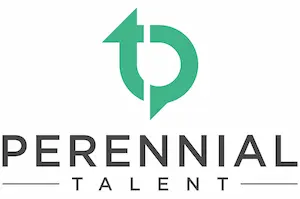How Much Are Bad Hires Costing You?
Imagine this: Your organization is growing rapidly, and the pressure to hire top talent has never been higher. Your talent acquisition team and hiring managers are beginning to feel overwhelmed by the hiring process. To make matters worse, there’s no standardized hiring process across departments or teams. Each hiring manager is left to their own devices, relying on inconsistent methods that often come down to gut feelings and unstructured conversations.
The result? A hiring process that feels more like a roll of the dice than a strategic decision.
Hiring is one of the most critical and costly decisions your organization will make. Every hire is an investment, and a poor hiring decision can ripple through your company, leading to lower productivity, higher turnover, and significant financial losses. Despite these high stakes, many organizations continue to rely on outdated, unstructured techniques that are prone to bias, inconsistency, and poor decision-making.
The Real Cost of Bad Hires
- The average cost of a bad hire can be as much as $18,700 per employee or 33-50% of their annual salary.
- For a single $60,000 position, a bad hire could cost nearly $20,000.
Even more alarming? As many as 30% of new hires leave within the first 90 days, often due to mismatched skills, poor fit, or unmet expectations – all consequences of inconsistent and unclear hiring practices. If your organization hires 10 new employees a year, those three bad hires could cost up to $60,000 annually.
And these figures don’t even account for the immeasurable costs: damaged team morale, lost productivity, and the strain on hiring managers and HR professionals.
The Solution: Using Behavioural Interviews
In a competitive talent market, where the cost of a bad can be devastating, you need a hiring process that delivers consistency, reduces bias, and identifies candidates who will succeed in your organization. The solution lies in structured behaviourally-based interviews, a science-backed approach for identifying and hiring top talent.
What Are Behavioural Interviews?
Structured behaviourally-based interviews are not just another hiring trend; they are a proven, practical approach that brings structure and fairness to your hiring process. Here’s how they work:
- Focused on the Role: Every question is designed to align directly with the skills and abilities needed for the job. This ensures you evaluate candidates on what truly matters for success in the role.
- Consistent and Fair: Every candidate is asked the same set of questions in the same order. This creates a fair and level playing field for everyone while making it easier to compare candidates in an objective way.
- Clear Evaluation: Responses are assessed using a straightforward scoring system that outlines what good performance looks like. This removes the guesswork and helps interviewers make more accurate judgments.
- Reduces Bias: By focusing on job-related criteria and real-world examples, behavioural interviews help minimize personal biases that can creep into the hiring process.
This method isn’t just about fairness. It’s about making smarter, data-driven hiring decisions that lead to better hires and better outcomes for your organization.
If you want to improve the consistency and structure of your interview process while reducing the impact of bias, let’s set up a quick call. On the call, we can brainstorm how to balance interviewing best practices with the unique needs of your organization.
Set up a quick 15-minute call here


